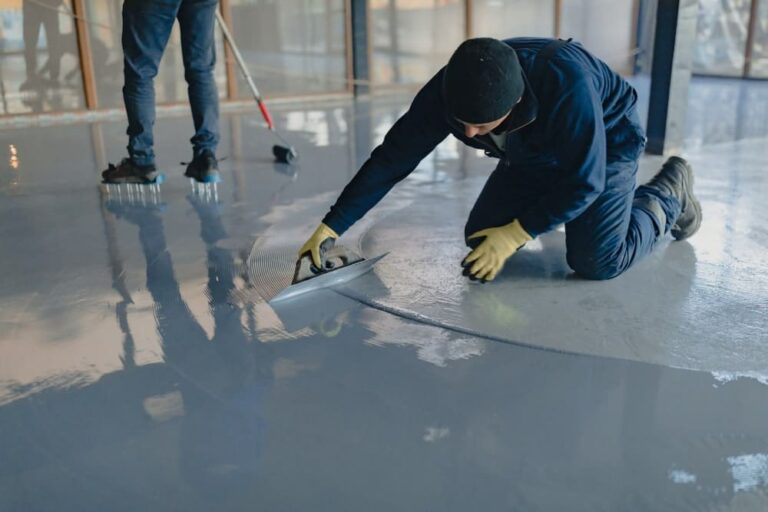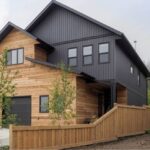Choosing the right concrete hardwood flooring coatings for your home involves more than just selecting a color or finish.
These coatings influence how your surfaces perform and age across different rooms and conditions.
From the garage to the basement to outdoor areas, surface treatment choices impact function and longevity.
To make the best possible decisions, homeowners must first ask the right questions.
This process can save time, reduce costly mistakes, and lead to a result that feels custom-made for your living space.
What Are the Primary Uses of the Space?
Before committing to a specific product or installation plan, think about how each area of your home is used daily.
Coating for residential garage floors must be able to support heavier weight and deal with fluid drips, hot tires, and repeated use.
In contrast, basement floors may demand a material that resists moisture, deals with temperature swings, or handles foot traffic.
For outdoor patios, weather exposure becomes a leading factor.
Knowing how the space is used directs you toward the performance characteristics you need most (such as slip resistance, abrasion durability, or UV stability).
Different rooms come with different demands.
A coating that works in a climate-controlled finished basement might perform poorly on a backyard patio that sees snow and summer sun.
Rather than relying on looks or trendiness, use function as your guide.
Ask yourself: what does this surface experience day in and day out? That answer shapes which product families you should even consider.
What Surface Conditions Exist Right Now?
Before applying anything, take a close look at the current state of the concrete.
Not all slabs are ready for coating. Some show signs of moisture intrusion, uneven settling, or prior treatment that will affect adhesion.
Others may have surface contamination, spalling, or hidden cracks beneath the surface.
These issues require attention before any new layer goes down.
Skipping this assessment leads to poor results and short lifespans.
Knowing what lies beneath the surface is not always obvious at first glance.
Moisture can rise through the concrete itself, especially in basement floors, which are often below grade.
This can lead to bubbling or peeling if the wrong type of coating is chosen.
Test kits or professional inspection can reveal these hidden threats.
The same is true of oils or chemicals that may have soaked into residential garage floors.
Without proper preparation, even the best coating won’t bond well.
What Kind of Finish and Feel Do You Want?
Looks matter. Texture matters.
What you see underfoot and how it feels to walk across that surface shape the daily experience of your space.
For some, a sleek, reflective surface feels modern and clean.
Others prefer a matte finish that softens light and looks more natural.
Some surfaces, especially on outdoor curtains, need extra grip to avoid slips after rain or snow.
Then there’s color.
A neutral gray may feel simple and industrial, while warm tones or speckled finishes add richness and dimension.
Don’t underestimate how much light will reflect in a space or how easily a surface shows dirt.
Glossy finishes often highlight every mark or footprint, especially in high-traffic zones.
In garages or utility spaces, that might not matter. In basements or recreational rooms, it can make a difference in maintenance.
Texture also affects comfort.
Smooth finishes are easier to sweep but might feel slick with bare feet or in wet areas.
A lightly textured or slip-resistant surface helps balance aesthetics with function, especially in areas prone to water exposure.
What Maintenance Will This Require?
Homeowners often overlook the care required after the job is done.
Some coatings offer long-term durability with minimal upkeep.
Others demand occasional resealing, reapplication, or special cleaning techniques.
Knowing the long-term routine helps you avoid surprises down the road.
In areas like residential garage floors, cleaning might be as simple as rinsing with a hose or sweeping debris.
However, if a coating stains easily or reacts poorly to automotive fluids, it may degrade faster than expected.
For basement renovation, moisture control and mold resistance should be part of the discussion.
Not every product has those traits built in.
Outdoor patios present their own set of maintenance concerns.
Exposure to sun, rain, and freeze-thaw cycles can cause certain coatings to discolor, crack, or peel.
Products that require seasonal touch-ups or sensitive cleaners might not fit a low-maintenance lifestyle.
If you want a surface that looks good for years without much effort, consider the full picture including climate, wear, and how much attention you’re willing to give it over time.
Who Is Handling the Installation?
Not every homeowner plans to do this job alone, and not every installer offers the same experience or methods.
Some systems require specialized tools or surface prep beyond what’s available to a casual DIYer.
Knowing who will handle the application (yourself or a professional) can narrow your product choices quickly.
Professional installation comes with distinct advantages, especially when dealing with large or uneven spaces.
Installers typically test for moisture, grind the concrete mechanically, and apply multiple layers with precision timing.
These steps improve both the look and longevity of the coating.
For high-stakes areas like residential garage floors, that expertise often pays off.
DIY kits exist for simpler applications, but they still require serious attention to surface prep and application windows.
Rushed or sloppy application can lead to poor bonding, bubbles, or patchy finishes. If you’re set on doing it yourself, take time to learn the process thoroughly.
Compare that to what a trained crew might offer, especially if you’re covering a larger space like basement floors or multiple outdoor areas at once.
Making the Right Call
Deciding on concrete floor coatings means asking smart questions, not just looking at color samples or price tags.
Every surface in your home plays a different role.
Garage floors carry weight and face chemical spills. Basement spaces might be humid and cold.
Outdoor patios fight off sun, wind, and moisture every season.
Each one needs a coating that fits the challenge.
Preparation is just as important as product selection.
A beautiful finish won’t last without proper attention to the concrete beneath.
Whether you’re working with a pro or tackling it solo, understanding your goals and the space’s needs helps you choose wisely.
Think about how you want the space to look and feel once it’s done.
Ask yourself what kind of maintenance you’re willing to commit to.
Review the surface as it exists now.
Take stock of how the area gets used.
Then ask yourself: who is best equipped to bring that vision to life?
These questions lead to better choices and better results.



